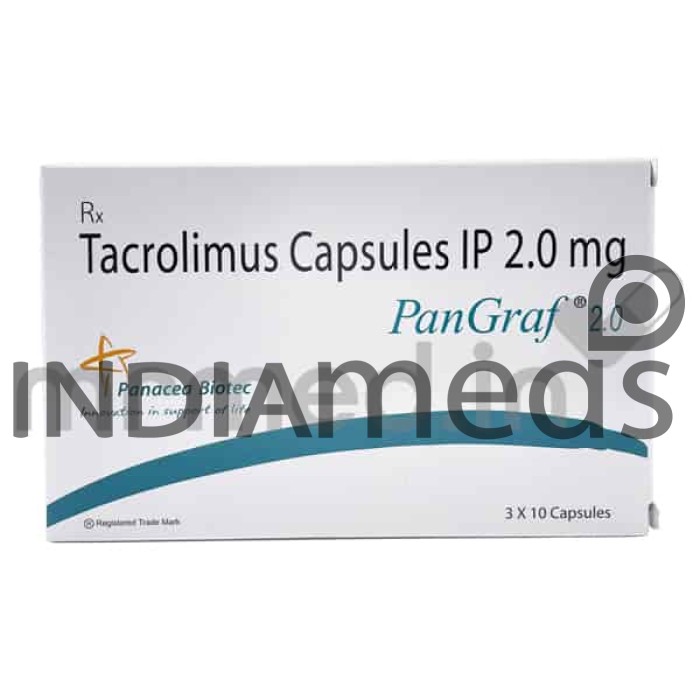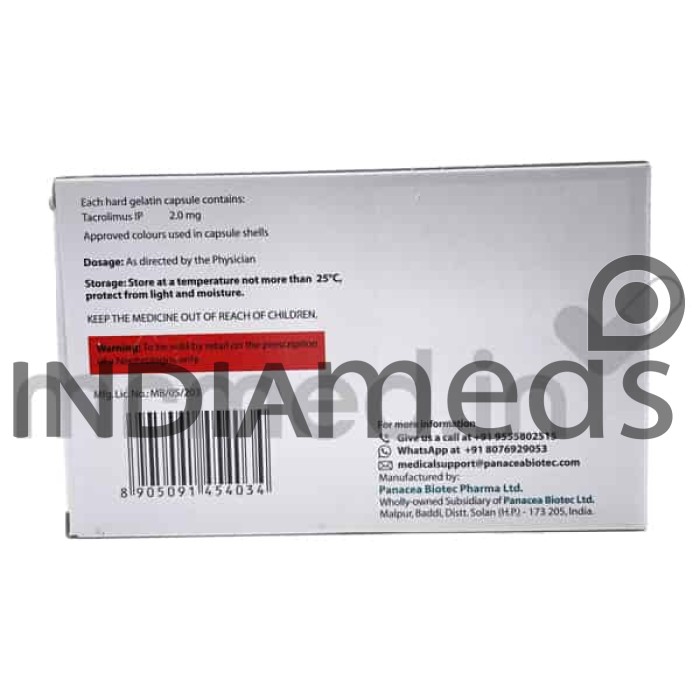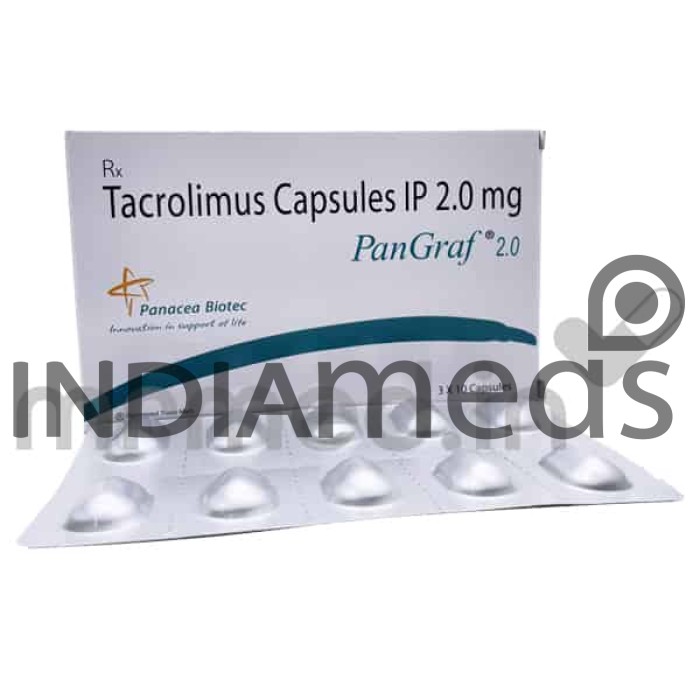Pangraf 2mg Capsule contains the active substance Tacrolimus. It is an immunosuppressant that belongs to the class of medications called calcineurin inhibitors. This capsule is used along with other medications to prevent organ transplant rejection in people receiving liver, kidney, heart, or other transplants. It is also indicated to control your body’s immune response, enabling it to accept the transplanted organ.
Do not take this Pangraf 2mg Capsule if you are allergic to tacrolimus or any of the other ingredients of this medicine. Report your physician if you are allergic to any antibiotic group. Inform your doctor if you have or had a liver or heart disease before initiating the treatment. Notify your physician immediately if you develop fever, bruising under the skin (which may appear as red dots), unexplained tiredness, confusion, yellowing of the skin or eyes, reduced urine output, vision loss, and seizures after taking this medicine.
Limit exposure to sunlight and UV light while consuming Pangraf 2mg Capsule by wearing appropriate protective clothing and sunscreen with a high sun protection factor. This is because of the potential risk of malignant skin changes with immunosuppressive therapy. This medicine may cause diarrhea; inform your physician if you have diarrhea for over a day. If you need to receive any vaccinations, consult your doctor once before receiving them.
Therapeutic Effects of Pangraf 2mg Capsule
Pregnancy
Based on animal studies, Pangraf 2mg Capsule can cause harmful effects on the baby. Inform your physician if you are pregnant, suspecting pregnancy or planning to get pregnant before initiating the treatment.
Breast Feeding
Do not consume Pangraf 2mg Capsule if you are breastfeeding because this medicine is excreted into breast milk and may cause harmful effects on the body.
Lungs
It is unknown whether Pangraf 2mg Capsule can be used in patients with lung disorders. Consult your doctor if you have any lung diseases before starting the treatment.
Liver
Pangraf 2mg Capsule should be cautiously administered in patients with severe liver diseases. Dose adjustments are necessary for severe liver failure. Inform your doctor if you have liver problems before initiating the therapy.
Alcohol
It is unsafe to consume alcohol when taking Pangraf 2mg Capsule because it may cause excessive drowsiness or liver problems.
Driving
Driving vehicles or operating machinery while taking Pangraf 2mg Capsule is unsafe because it may cause drowsiness and vision problems.
Common
- Swelling in the arm or leg
- Hair loss
- Itchy skin
- Constipation, diarrhea
- Nausea, vomiting
- Anemia
- Headache
- Cough
Serious
- Increased or decreased heartbeats
- GI bleeding
- Liver Injury
- Seizure
- Acute kidney failure
- Lung infection or respiratory problems







